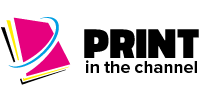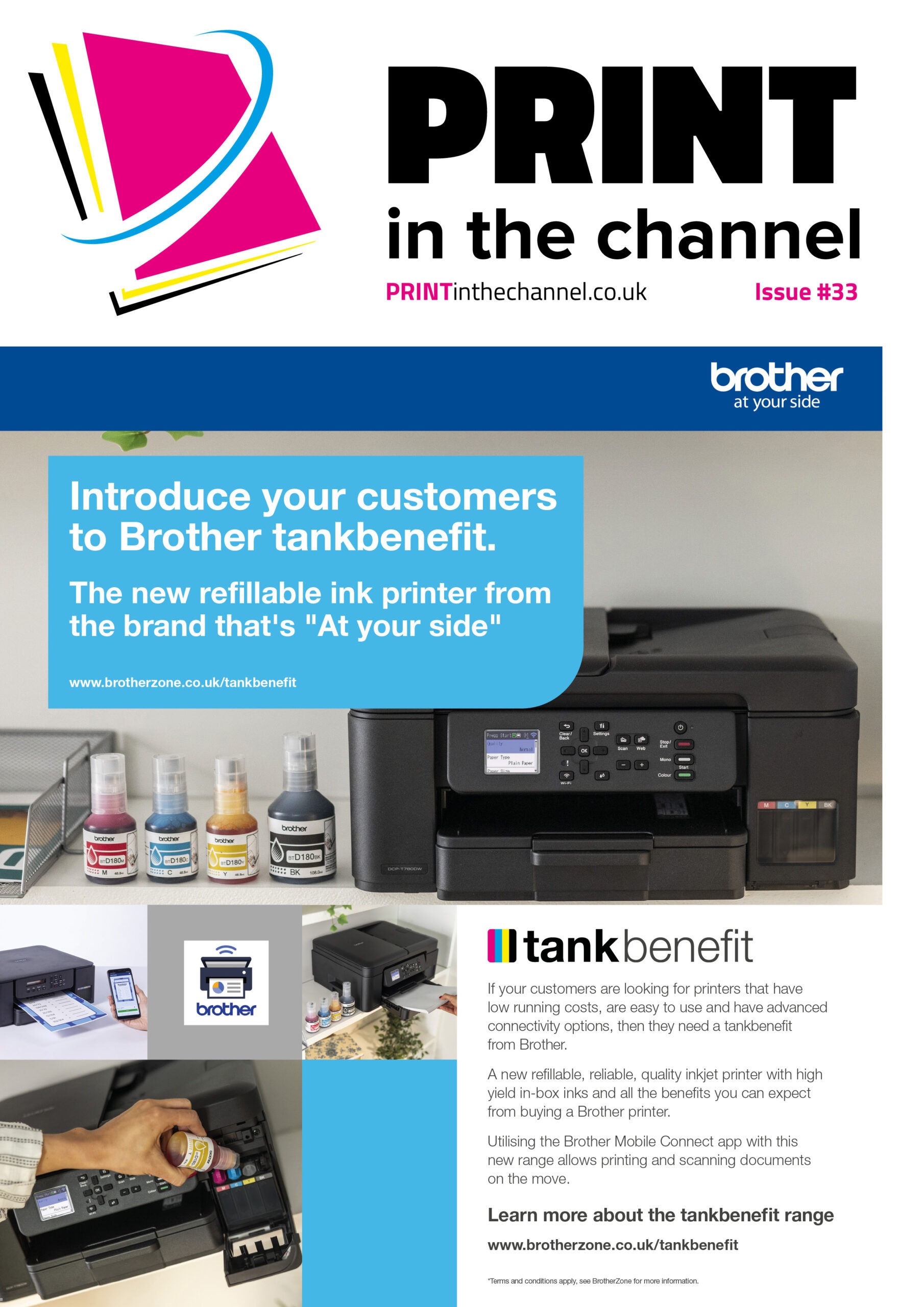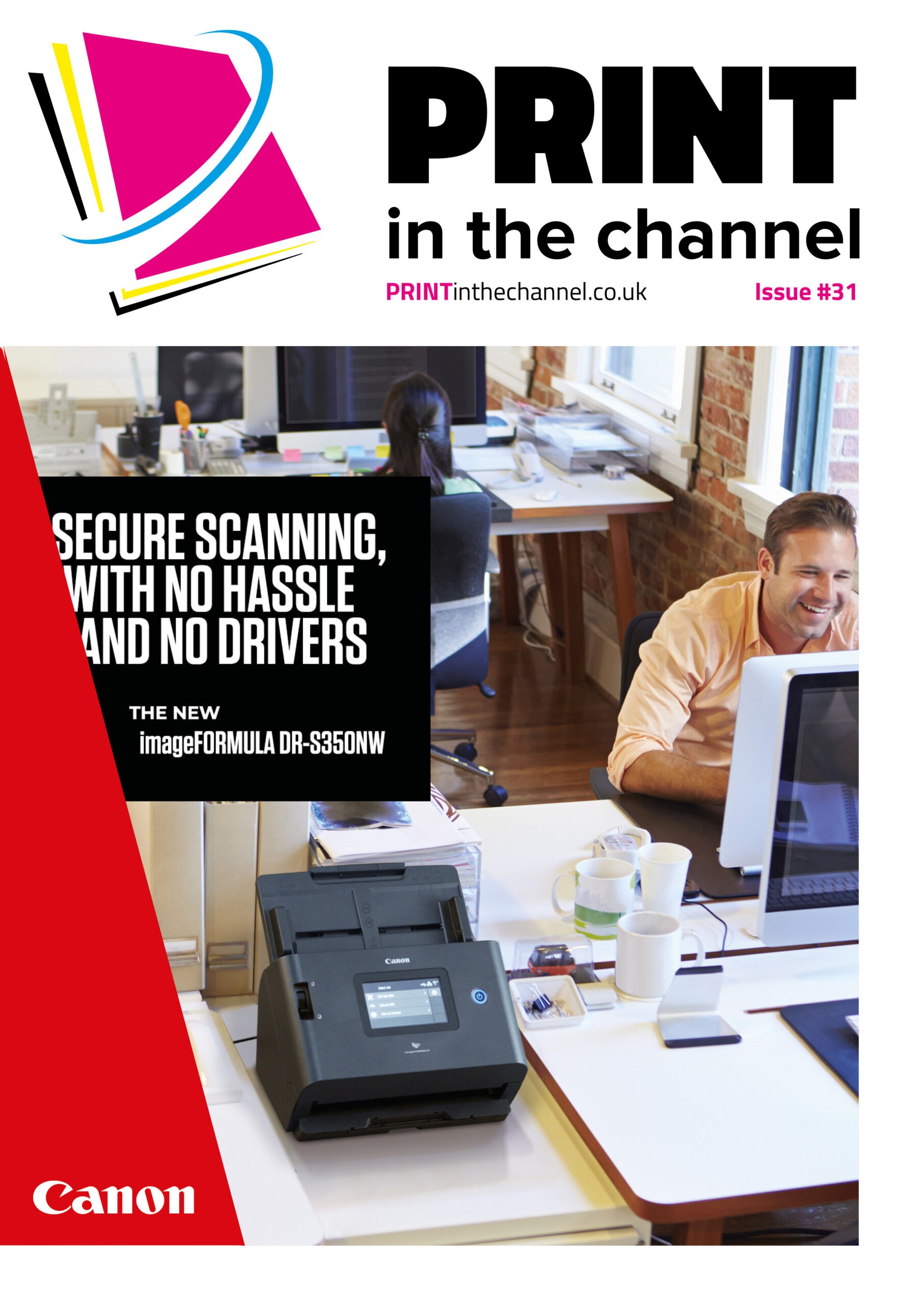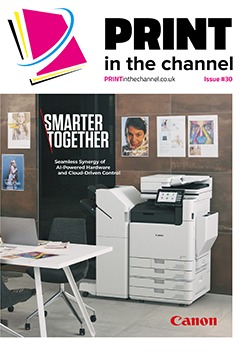PaperCut has a reputation for bringing disruptive products to the market, and this is continuing – and helping resellers to present different conversations to customers that can lead to more sales.
Business as usual might be easy, but it’s not always the best course of action. Technology progresses, and new devices and software that disrupt the norm can help users to become more productive and efficient – and therefore profitable.
Disrupting the market is something that PaperCut has sought to do since its inception and continues to do. For instance, PaperCut recently held its annual Partner Summit, which had thousands of attendees from around the world, with a focus on thought leadership for the market and product direction.
“To ensure that resellers don’t become stuck in their ways, at Partner Summit we bring them different ideas and case studies of trends we’re seeing emerge; whether that’s print queue deployment or print enablement, as well as other hot topics like Windows Protected Print (WPP) and Universal Print. We discuss how those can bring different conversations to their customers,” says Stuart Brookes, EMEA regional lead and head of sales and channel at PaperCut.
New opportunities
For example, resellers are looking for opportunities to create new revenue streams as printer fleets and the number of printed pages shrinks; digitisation and document workflow is one area they’re exploring. “One common element of feedback we get, from end users and resellers, is that when a reseller goes in and sells half a dozen MFPs or 500 MFPs,there’s always a strong element of desktop print in an organisation and it must be managed,” says Stuart.
“Our industry at times has been guilty of saying that print and print drivers are for the IT team to manage. But, as IT teams shrink and organisations increasingly look to outsource managing print queues and drivers, we’re starting to see resellers spot an opportunity to take over the management of that and generate additional revenue while also creating a better end user experience.”
Stuart adds that today’s hybrid workers want to walk into an office and have all their queues and drivers available, then go into another office next week and have a local queue and driver available there, too. “Whether you’ve got a distributed Find Me function or desktop printers, that ability to allow a user to just print without having to make a call to IT or do anything themselves is valuable,” he says. “Resellers are starting to capitalise on that as an opportunity to generate additional revenue and provide additional services. In this case, it’s about how resellers can have a bigger wallet share and remove more pain points from their end user customers – and this is what PaperCut can help with.”
WPP
Stuart adds that while WPP will ultimately remove the need for print drivers, the market isn’t fully across the potential for disruption that it could cause. “At the Summit, we talked about WPP to ensure that resellers are aware that, if a customer mentions it, we can absolutely support them,” he says.
“We can support legacy devices from the OEMs that aren’t WPP enabled. But moreover, when their customer mentions WPP, we’re working to help resellers understand what are the pros, the cons and the ‘gotchas’ that they need to be aware of. Because, once you turn it on, you can’t bring all your printers and drivers back to life. Once you’ve deleted them, you’ve got rid of all of them. That’s why making them aware of the pitfalls is really important.
“For resellers, the ability to talk to customers broadly about what’s happening in the industry in the next 12 months, and what they need to be aware of, is really important. Some customers, especially SMBs, won’t know about what’s on the horizon because they don’t have the in-house expertise. Those conversations that make customers aware of what is coming down the line, and why they need to future-proof their business against it, can present a real business advantage.
“While many new devices are WPP-enabled, there’s a huge legacy base out there globally, let alone in the UK, that can’t be upgraded to support WPP. That’s where we can ensure that that reseller is aware that we can help them to look after that legacy fleet, as well.”
Positive outlook
PaperCut has many ways it can help resellers to look after a fleet, such as the unified subscription model for its MF and Hive products, which was launched a year ago and has exceeded expectations, according to Stuart. “Resellers understand the benefits that come with that second and that third renewal,” he says. “Customers are taking a more long-term approach as they understand the value that subscription brings.”
Stuart adds that the unified subscription will continue to be invested in and developed with new modules and programmes set to be released in the future. “For us, unified subscription is our future,” he says. “We want to continue to provide that as it is proving attractive to end users and encourage them to invest in this platform because it will suit them better in the long-term. We’re already seeing a high retention rate in it.”
The success of the subscription service has contributed to a positive first half of the year for PaperCut. Stuart adds that PaperCut Hive has also enjoyed strong growth over the past year across the EMEA region, especially in the micro-SMB space, where users typically have one to five devices.
“We’re starting to get end users asking specifically for information on it and for the product,” he says. “We’re just bringing out the Print Queue Deployment feature into Hive, which will enable resellers to licence the product differently; they can just manage print queues in the short-term, with the possibility of upselling to Find Me printing and greater security as it moves forward.”
AI
AI is obviously another disruptor in the marketplace, and it is no surprise that PaperCut is embracing it. “It is an exciting time to see what AI can do for the industry,” says Stuart. “For resellers, there’s a fantastic opportunity to refine go-to-market tactics and approaches.
“But people need to be conscious that AI doesn’t and isn’t going to solve all problems. You can’t just rely on it to do your job, and it won’t be replacing anyone on our team.
“For us, it’s an addition to existing workflows and business processes. I think anyone who’s not using it today is missing a trick. Externally, we’re using AI agents to help with sales cycles and we’ve got a fantastic support tool on the website that’s now driven through AI. It’s getting amazing feedback from our resellers and end users, because it enables them to simply go to the PaperCut website, ask a question, and get an accurate, pointed, detailed response.”
But Stuart warns that any AI used must have a defined purpose. “There’s a lot of AI for AI’s sake across the board,” he says. “But you must think about where it will be used, where does it give the most return and the most benefit? It is a cross-business function and definitely has value, but you’ve got to be clear on where and how best to integrate it.”
Sustainability
Sustainability is another goal that must have a defined purpose if it is to be successful. Again, this is something core to PaperCut, and where the company continues to disrupt the market. “Sustainability continues to thrive right from the bottom of the business to the very top,” Stuart says. “It’s not a buzzword; they’re the values that PaperCut was founded on over 20 years ago and that we live every day.
“PaperCut now has B Corp certification. Attaining it is one thing, but maintaining it means you’re constantly at the front of understanding what your sustainability strategy is and ensuring that everything we do has got B Corp at the front of it. It’s not one of those things where you can just tick a box and never think about it again.”
Stuart says that it is something that is increasingly prioritised, especially with the moves to SaaS and the increasing use of AI putting pressure on data centres.
PaperCut is also helping organsations to become Forest Positive, an initiative the company runs to help customers to contribute to planting more trees than their printing uses. “That ability to talk about being Forest Positive and incorporating that into tender responses and into sales processes, can help resellers to land contracts,” Stuart says.
“Whether it’s in the company or in our products, sustainability will continue to be something that we will heavily invest in because it’s always been core to our values.”
Continuing to disrupt
After a positive first half of 2025, Stuart is looking forward with confidence with the product lineup that PaperCut has and developments in the pipeline.
The key, of course, is to continue to disrupt the market. “That disruption creates positivity and opportunity because resellers can go and have different conversations with customers,” says Stuart. “They can talk about how they can help with the transition to WPP, or how they can help with shrinking IT teams by taking over management of desktop printers and print queues. It creates a different opportunity for resellers.
“Those people that are brave enough to change the tone of the conversation can find there is a lot of value to be had rather than just saying, ‘Hey, your MFD contract is up for renewal, do you want to extend?’ That’s why we’re working hard to provide the solutions, technology, sales and support tools needed to change the direction of those conversations, ensuring that PaperCut’s partners are primed for print in the cloud and AI era.”









